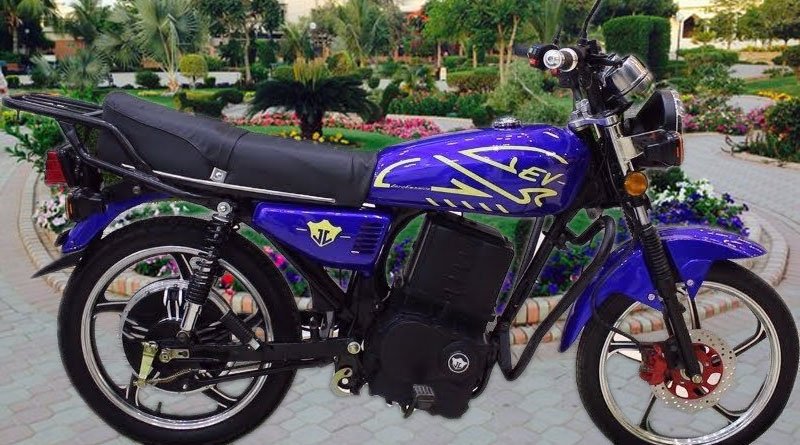The ministry expects to produce and sell 15000 e-bikes during the current fiscal year, with 60000 and 100000 e-bikes produced in 2022–23 and 2024–25, respectively.

In order to reduce the use of more expensive fuel and protect the environment, the Ministry of Industries and Production has devised an Electric Bike (E-Bike) Scheme, under which the ministry has proposed subsidised and bank financing plans to promote the use of Two Wheelers (E-Bikes) in the country.
According to documents obtained by this scribe, the ministry designed the subsidised E-Bike scheme with the goal of producing at least 100,000 E-Bikes in the first 18 months. To encourage the purchase of more expensive bikes, the ministry has proposed a Rs 17.5 billion subsidy over three years to run the new bikes on the roads.
According to the plan, the government will pay a down payment of Rs 90,000 for an e-bike with an estimated cost of Rs 170000, while the purchaser will pay a share of the down payment of Rs 10000, bringing the total down payment to Rs 100,000. The bank will charge Kibor+2, or 19 percent interest, on a commercial loan of Rs 70000, which is estimated to be Rs 13300.
The proposed scheme also includes a 24 monthly instalment plan in which the customer will pay Rs 4310 per month, which includes the principal amount of Rs 2917, interest payments of Rs 1109, and insurance payments of Rs 284 each.
The ministry expects to produce and sell 15000 e-bikes during the current fiscal year, with 60000 and 100000 e-bikes produced in 2022–23 and 2024–25, respectively, bringing the total production to 175000 bikes in three years.
Students with salaried parents, female students and employees (20% quota), transgender people (1% quota), government employees, private sector salaried and self-employed individuals with NTNs and bank accounts, government and armed forces pensioners, and imams duly qualified from an institute recognised by the government of Pakistan (endorsed by M/o Religious Affairs) would be eligible for the subsidised program.
For the program’s success, the ministry has proposed three subsidy models, including the cash purchase model, in which the government will share Rs 100,000 through banks as processing agents and consumers will pay a lump sum of Rs 70,000 from their own funds.
Under the Government Subsidy Leasing Model, the Rs 100,000 is shared by the government and the consumer, while the remaining Rs 70,000 is provided by banks as a loan with a 50% credit guarantee from the government. The government will meet the 30% subsidy down payment with a 50% financing subsidy and a 50% credit guarantee under the Government Subsidy Leasing Model 2.
To promote locally assembled E-bikes and allied parts (Lithium-Ion, swappable batteries), the ministry has proposed charging at home or work using personal chargers, government offices, and universities.
It has been suggested that PSO be tasked with installing EV chargers at select outlets in the target city, as well as special metres for commercial charging stations and solar tariff metering. The scheme could begin as a pilot project in Islamabad, Peshawar, Quetta, Lahore, and Karachi in 2022–23.
The new scheme was presented at a Federal Cabinet meeting here on Wednesday, where officials from the Engineering Development Board (EDB) and the Ministry of Industries and Production provided a detailed briefing.
According to an official statement, there are currently 90 companies in Pakistan that manufacture motorcycles and auto rickshaws, and the country has the capacity to produce 6 million motorcycles per year.
The meeting also learned that 22 companies have been granted licences to manufacture e-bikes in Pakistan. The meeting was also informed that promoting e-bikes in Pakistan will save a significant amount of fuel. The use of e-bikes will not only save fuel, but these eco-friendly electric bikes will also reduce carbon emissions.
According to officials, the prime minister has referred the scheme to the Economic Coordination Committee for further consideration and work on the financial model.